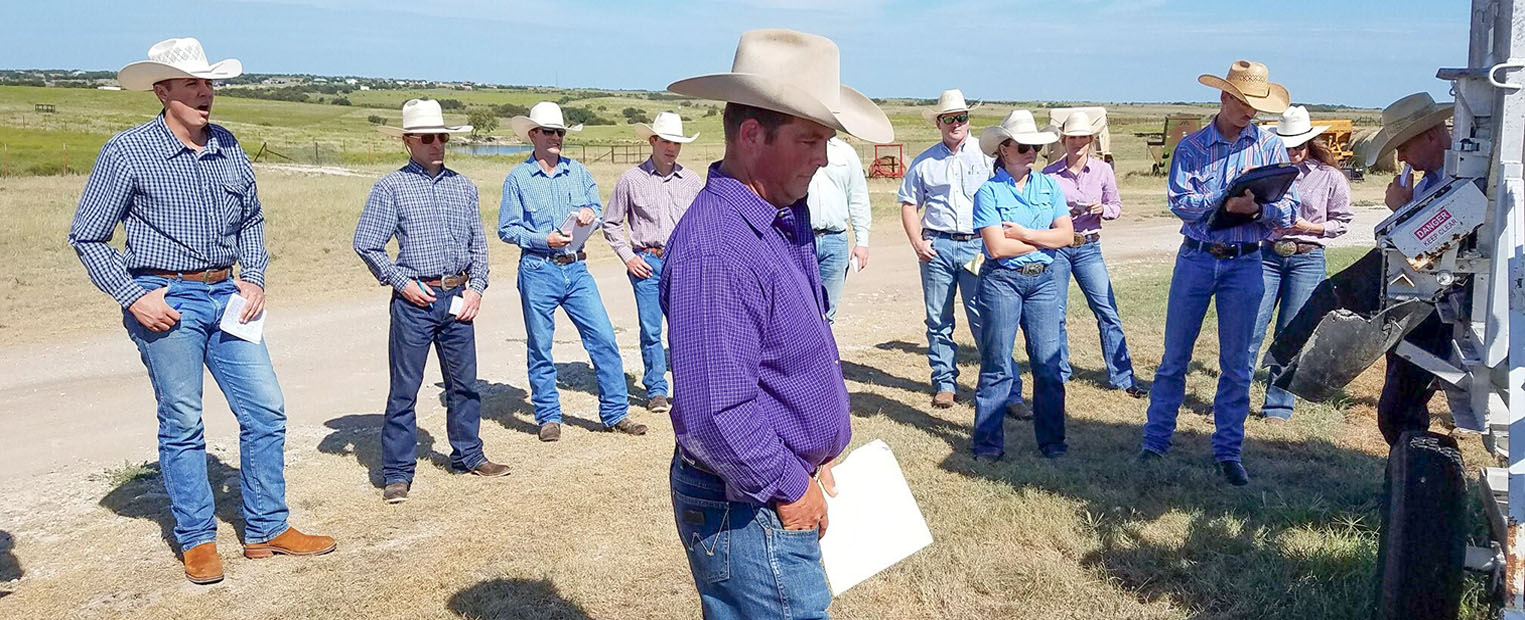The Ranch Management Program joined the College of Science & Engineering in April 2019. The program is uniquely designed to train students to meet the challenges and help shape the future of agricultural resource management.
Because the job market for agricultural resource managers is rapidly expanding, there are opportunities in many areas, including commodity investment, agricultural marketing, international trade, as well as ranch management. Students are taught principles of managing soils, water, plants, animals, marketing, finance and people as they relate to the agricultural resources.
The department’s mission statement shapes how the department functions: TCU Ranch Management prepares professionals to manage a broad range of global resources on an ecologically and economically sound basis while conserving and improving resources. Burnett Ranches Endowed Professorship in Ranch Management and Director of Ranch Management Kerry Cornelius puts this mission into practice. “We strive to teach our students how to put a dollar figure on everything they do on the ranch. We are teaching business 101, with a focus on beef cattle production,” he said.
The program requires one academic year (nine months) to complete. The curriculum is designed to teach agricultural resource management by combining academics and practical experience. Traditional classroom instruction and discussion are coupled with fieldwork observation, allowing students to implement their knowledge in real-world projects. The program is challenging and requires dedication, hard work, careful study and passion for the profession.
“It is very intense and a lot of work, but also the most fun learning experience you can have if you want to learn about the business side of ranching,” Cornelius said. “We aren’t better than anybody else but we are darn sure different.”
Field trips are a vital part of the ranch management education. Students will go on a number of short excursions to local agricultural operations, as well as five week-long trips to operations in different geographic locations. The locations of each visit are chosen to include different kinds of country, livestock and operations that are representative of the ranching industry.
“There are three ways you learn something: hear it, see it, do it. We accomplish these three things by lecturing in the classroom, traveling to visit roughly 70 different operations, and last but not least, operating six major projects during the year. These include a Corral Plan, Range Plan, Records Plan, Management Plan, Forage Plan, and Marketing Plan,” Cornelius said.
There are two tracks that the department currently offers:
Certificate in Ranch Management
This 9-month program addresses the rapidly changing conditions in the global market and provides students with field training and academic courses needed for success. This has been offered since 1955 and continues to serve the industry with the latest technology available. The curriculum offers ecologically and economically responsible business training to students interested in the agriculture business. Upon completion of the course of study, a graduate receives 35 credit hours, transferable to most colleges and universities, and a Certificate of Completion in Ranch Management.
Bachelor’s of Science Degree in Ranch Management
Students must complete all undergraduate core requirements of TCU prior to applying to the Ranch Management program. Qualified students will be given conditional acceptance into the program. They must then successfully complete the requirements for a General Business minor for non-business majors and any other requirements.
There are currently 16 areas of study included in the program. This provides a diverse array of learning opportunities for students.
Associate Professor Kevin Johnson emphasizes the lasting impact the program has on future generations. “The Ranch Management Program gives students the confidence to make good decisions ecologically and economically concerning the resources they manage. The program is a generational changer for these students — it will change their lives, and more importantly, the lives of their children.
